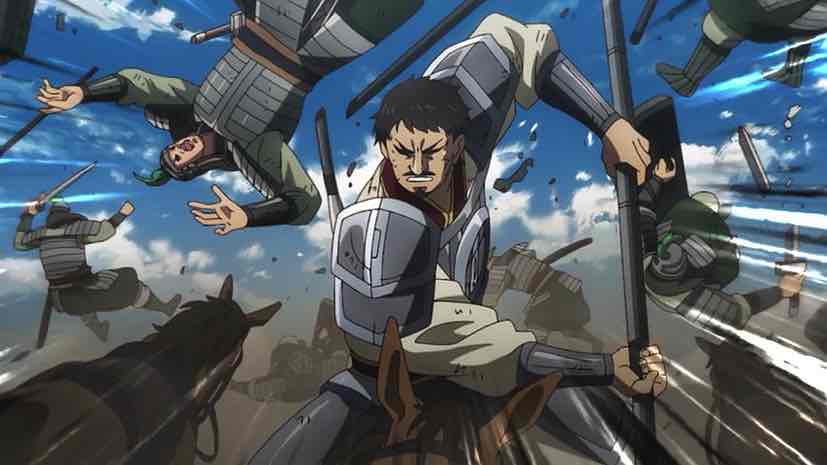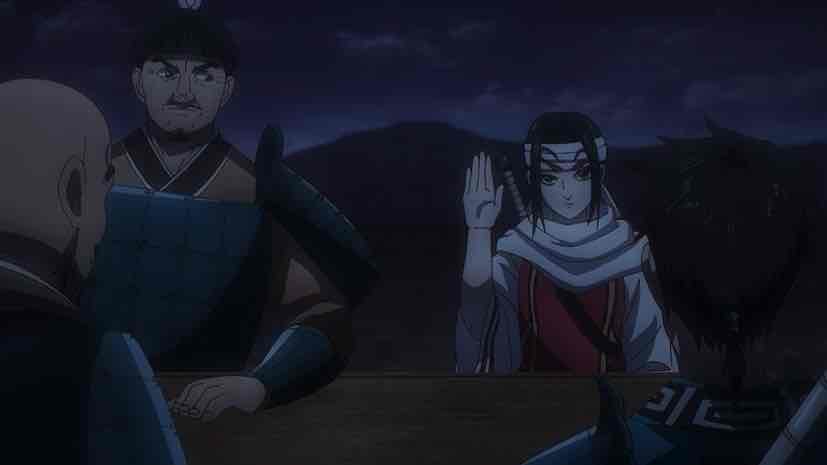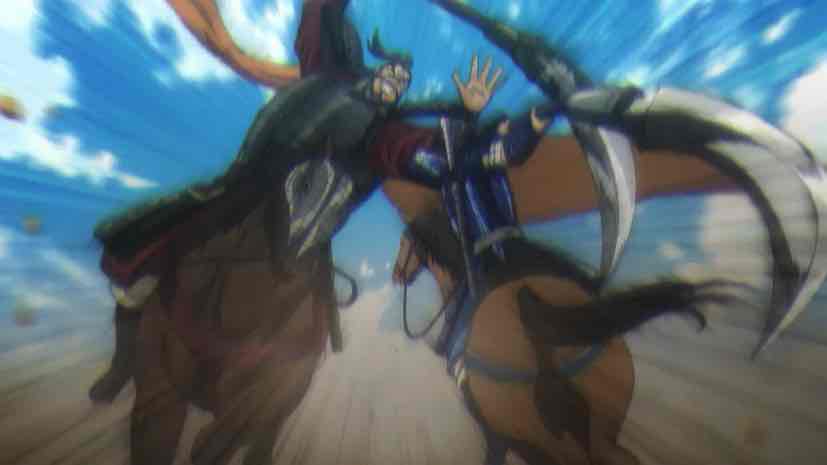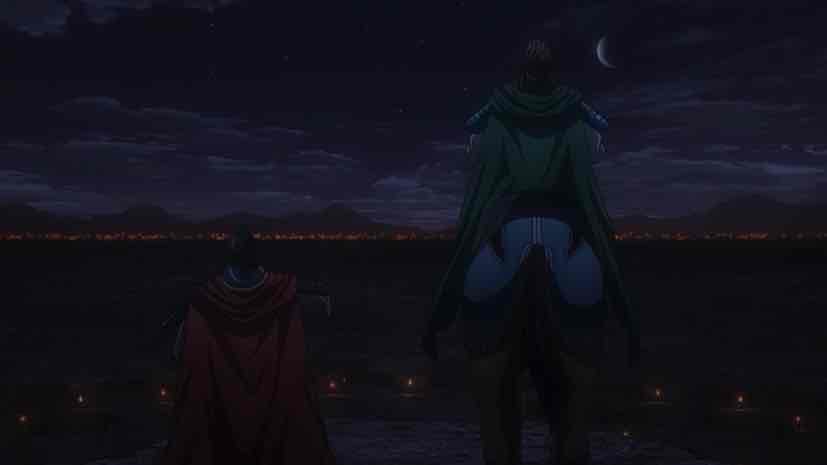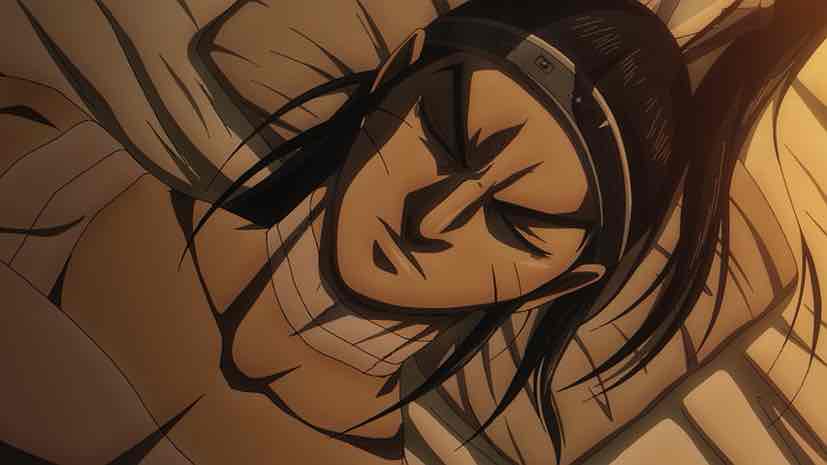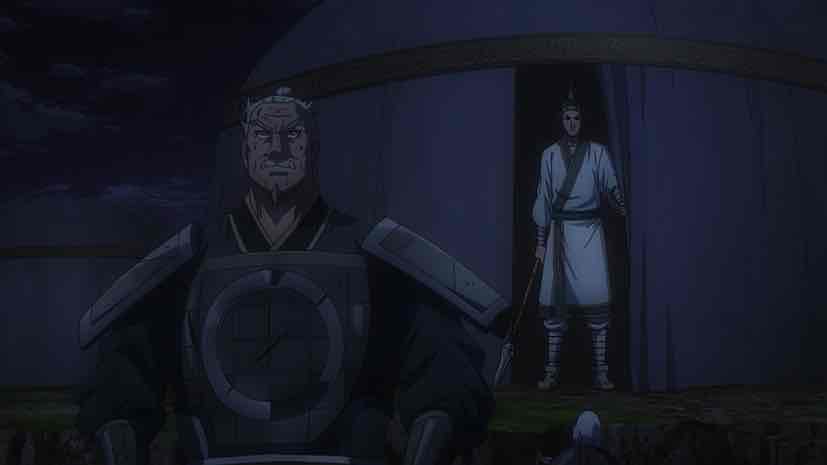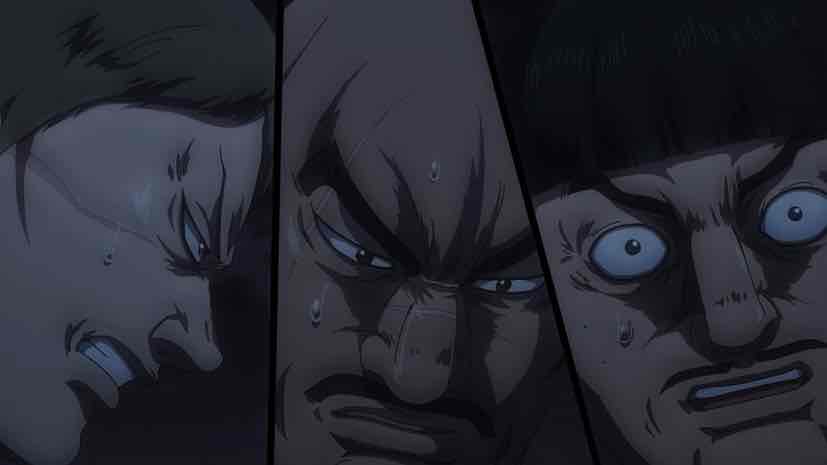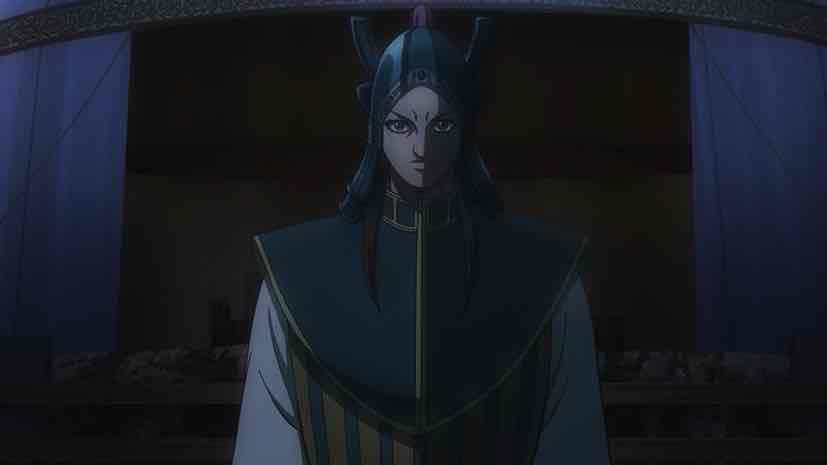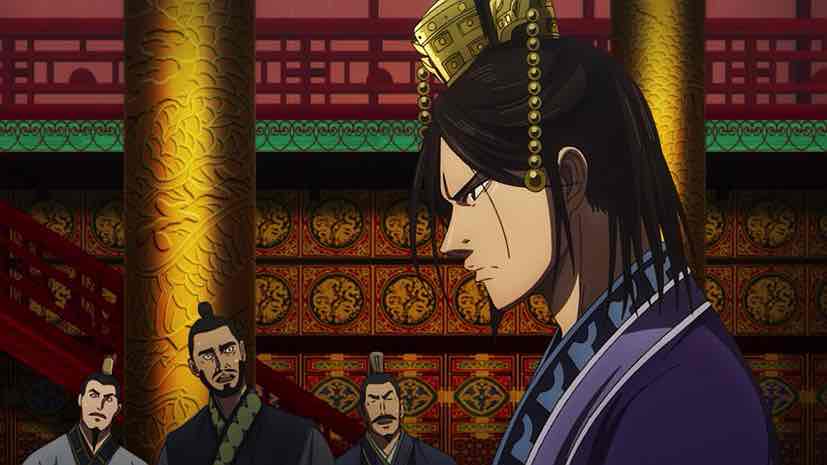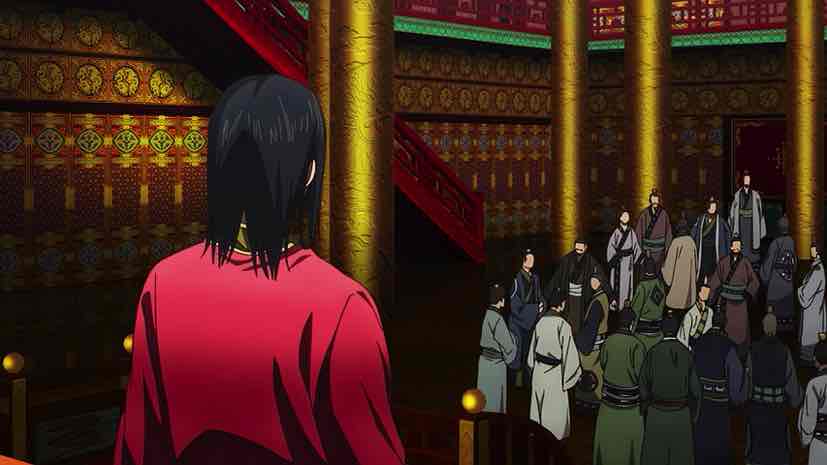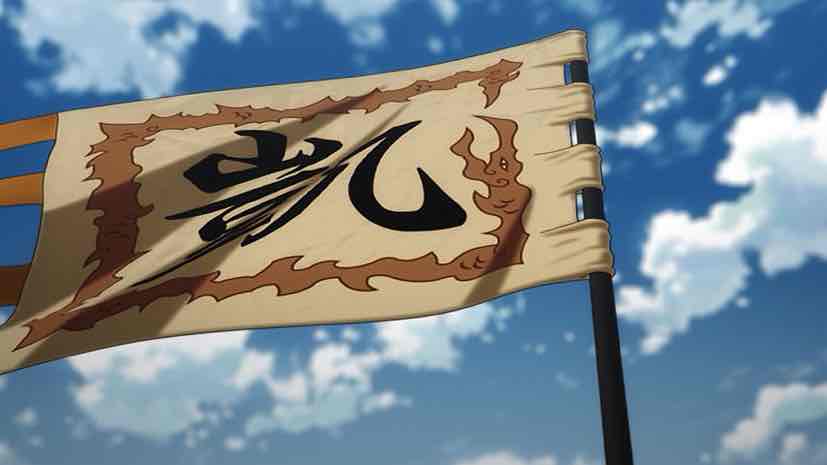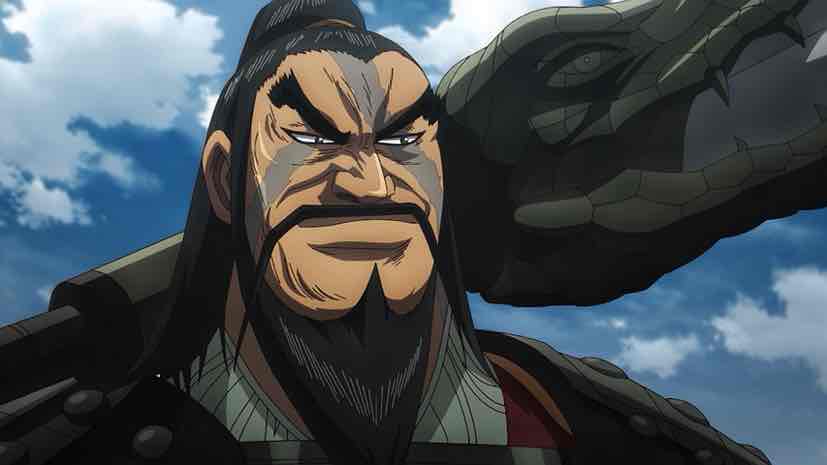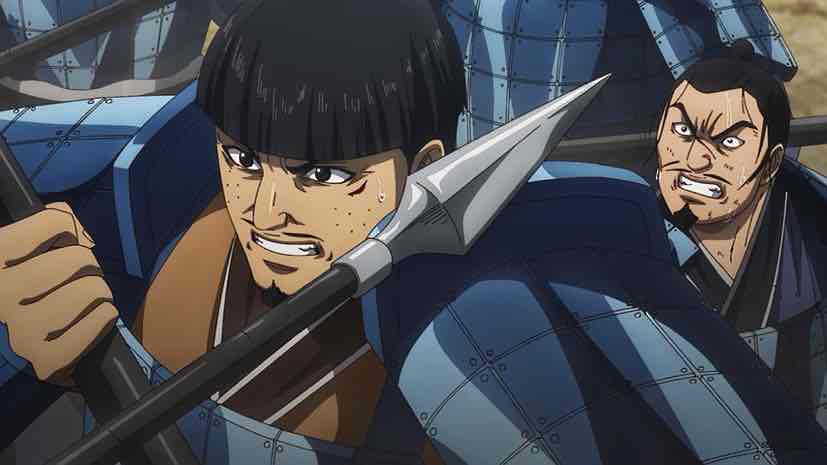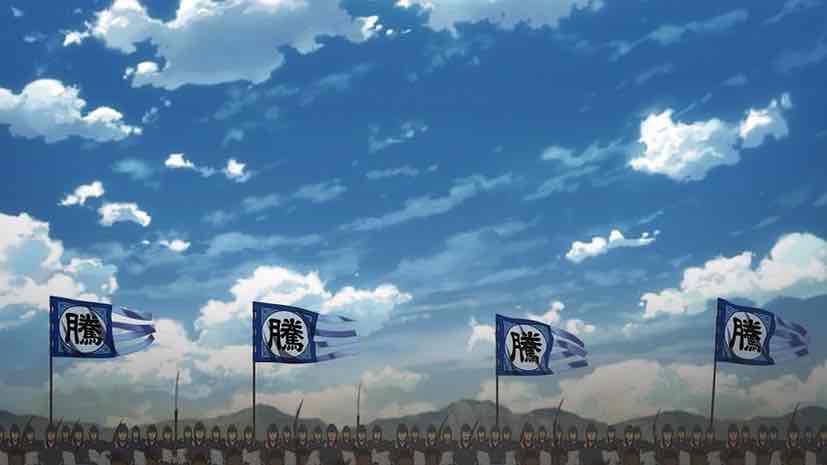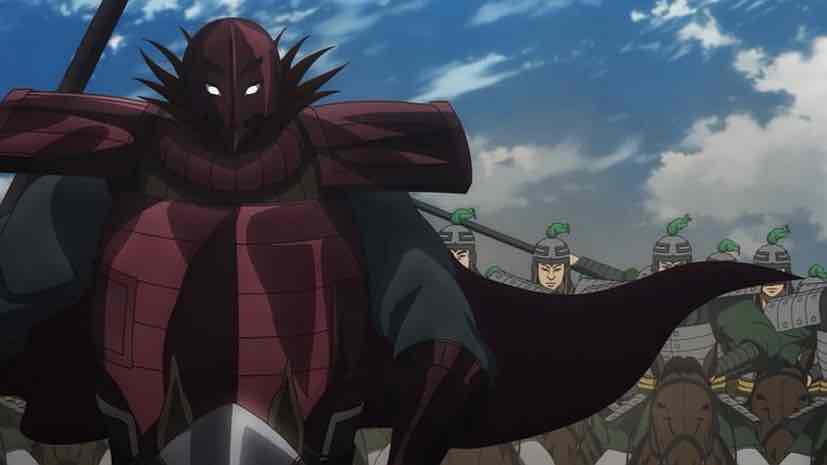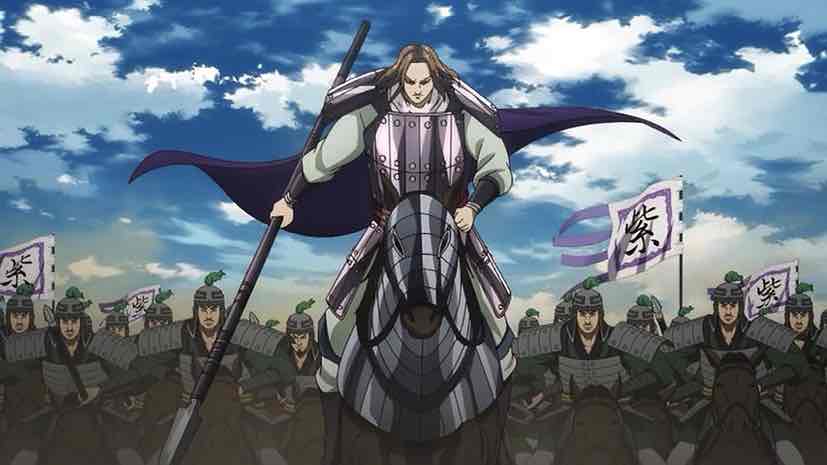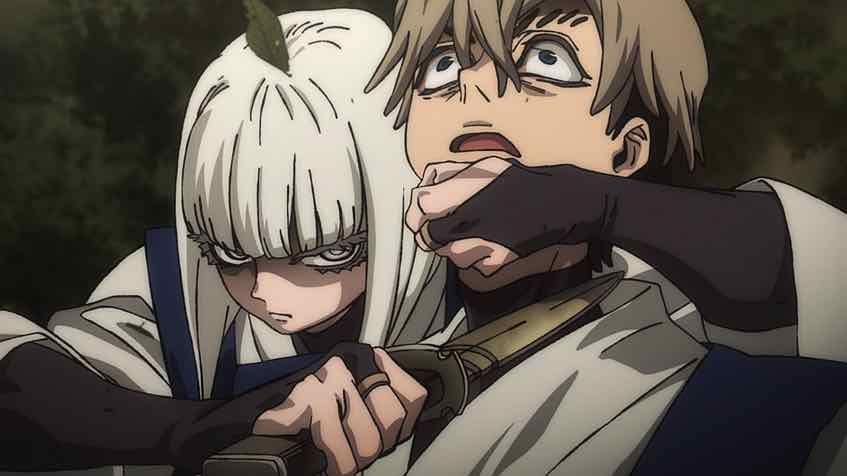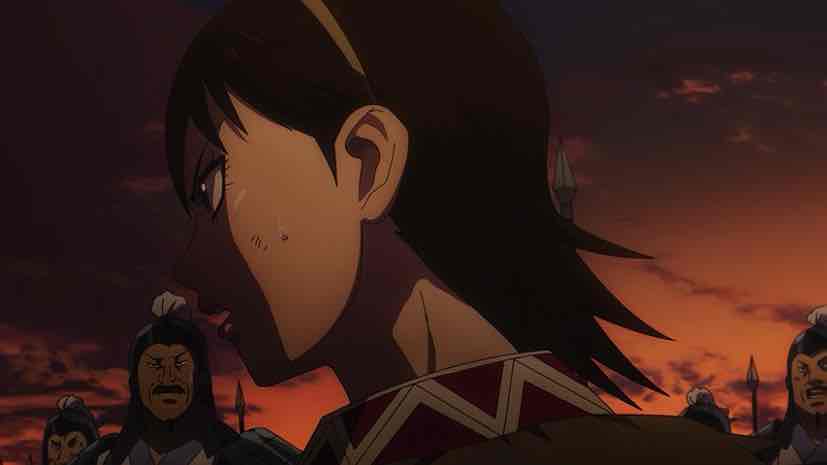 This was pretty much your classic “calm before the storm” episode, which in Kingdom terms means the carnage was only semi-horrifying. War is hell, no truer words were ever spoken. That’s the elephant in the room, the balance this series (and any which effectively glorifies soldiers for being good at killing people) must strike. Watching events like this play out – skirmishes relatively minor in the larger battle which nevertheless leave hundreds dead and wounded – is a reminder of what a brutal era this series depicts.
This was pretty much your classic “calm before the storm” episode, which in Kingdom terms means the carnage was only semi-horrifying. War is hell, no truer words were ever spoken. That’s the elephant in the room, the balance this series (and any which effectively glorifies soldiers for being good at killing people) must strike. Watching events like this play out – skirmishes relatively minor in the larger battle which nevertheless leave hundreds dead and wounded – is a reminder of what a brutal era this series depicts.
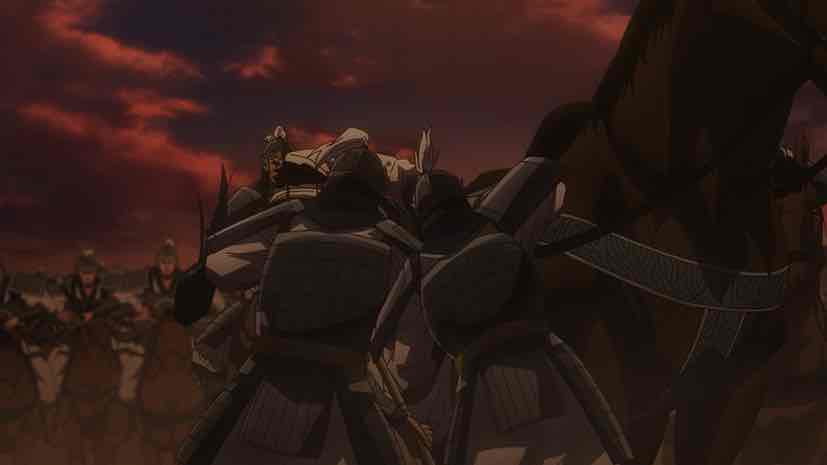 This episode in particular is really a study in contrasts between the new and old blood. As Wang Ben and Xin, battered and exhausted, prepare to face the front lines on the third (and crucial) day their elders reflect on what’s playing out. Lu Wuwei seethes that Teng is effectively sitting this one out (and that the flatbellies are getting all the glory). But Teng has a different perspective. Yes, all of China is watching to see how this clash plays out, but not to see who wins the staredown between he and Wu Fengming. Rather, it’s the time for young guns of Qin – which is conspicuously running low on old, big guns – to show that they’re ready for the big stage. Or die trying…
This episode in particular is really a study in contrasts between the new and old blood. As Wang Ben and Xin, battered and exhausted, prepare to face the front lines on the third (and crucial) day their elders reflect on what’s playing out. Lu Wuwei seethes that Teng is effectively sitting this one out (and that the flatbellies are getting all the glory). But Teng has a different perspective. Yes, all of China is watching to see how this clash plays out, but not to see who wins the staredown between he and Wu Fengming. Rather, it’s the time for young guns of Qin – which is conspicuously running low on old, big guns – to show that they’re ready for the big stage. Or die trying…
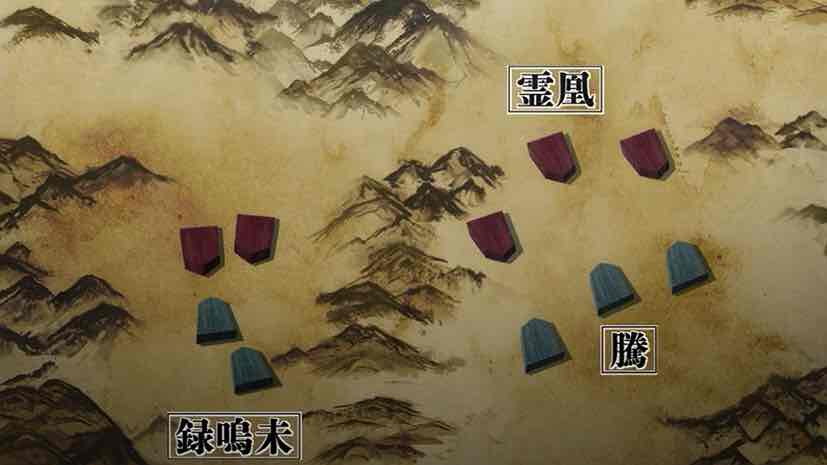 It’s also a battle of strategists, with Diao, Xun Zao, and Ling Huang each trying to think one step ahead of the others. Wang Ben’s reckless strategy has made Wu Fengming cautious if nothing else – he keeps looking to Teng for cues as to what the enemy’s endgame is here, and not getting them. Wang Ben has effectively given his rival Xin a chance to rise in glory, because his plan fails unless both of them succeed. And another of the old guard, Han Chang, bristles a bit at the way his lord’s son is using his squadron – as cannon fodder, basically, and a shield to hide his own presence until he’s ready to face the spearmaster Zi Bai in a rematch.
It’s also a battle of strategists, with Diao, Xun Zao, and Ling Huang each trying to think one step ahead of the others. Wang Ben’s reckless strategy has made Wu Fengming cautious if nothing else – he keeps looking to Teng for cues as to what the enemy’s endgame is here, and not getting them. Wang Ben has effectively given his rival Xin a chance to rise in glory, because his plan fails unless both of them succeed. And another of the old guard, Han Chang, bristles a bit at the way his lord’s son is using his squadron – as cannon fodder, basically, and a shield to hide his own presence until he’s ready to face the spearmaster Zi Bai in a rematch.
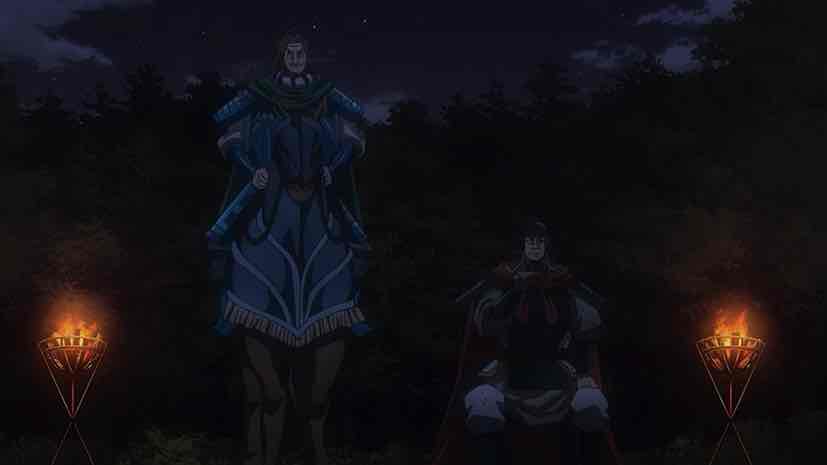 Lu Wuwei’s role aside, the fate of the battle seems to lie in both the young guns managing to best Fire Dragons in single combat. And that’s a big ask, as neither Zi Bai or Kai Meng is carrying any injuries like their younger opponents, and neither has seen nearly as much action over the preceding two days. As an opportunity to build reputations it’s certainly a banger – a real “first step on the road to great general”, as Qian Lei says. But there’s not much which, on paper, suggests either of these lads should be able to win (and both their armies are outnumbered, to boot).
Lu Wuwei’s role aside, the fate of the battle seems to lie in both the young guns managing to best Fire Dragons in single combat. And that’s a big ask, as neither Zi Bai or Kai Meng is carrying any injuries like their younger opponents, and neither has seen nearly as much action over the preceding two days. As an opportunity to build reputations it’s certainly a banger – a real “first step on the road to great general”, as Qian Lei says. But there’s not much which, on paper, suggests either of these lads should be able to win (and both their armies are outnumbered, to boot).
 There’s a metaphor at work here, surely. The strategy is a huge gamble in the battle for Zhuyong itself, obviously. But it’s also a gamble it seems like Qin has to make to foster its larger goals. This grand design of unifying the warring states – one which Wang Qi himself believed in – requires Qin to have loftier aims than its rivals. And it’s a nation in a state of transition of leadership. Even as Zheng struggles to cement his power in Xianyang, a new generation of military commanders must rise to prominence on the battlefields with most of the giants now gone. Somehow managing to triumph at Zhuyong would be like fast-forwarding that process – for Xin and Wang Ben at least (and that’s something Teng seems well aware of).
There’s a metaphor at work here, surely. The strategy is a huge gamble in the battle for Zhuyong itself, obviously. But it’s also a gamble it seems like Qin has to make to foster its larger goals. This grand design of unifying the warring states – one which Wang Qi himself believed in – requires Qin to have loftier aims than its rivals. And it’s a nation in a state of transition of leadership. Even as Zheng struggles to cement his power in Xianyang, a new generation of military commanders must rise to prominence on the battlefields with most of the giants now gone. Somehow managing to triumph at Zhuyong would be like fast-forwarding that process – for Xin and Wang Ben at least (and that’s something Teng seems well aware of).


